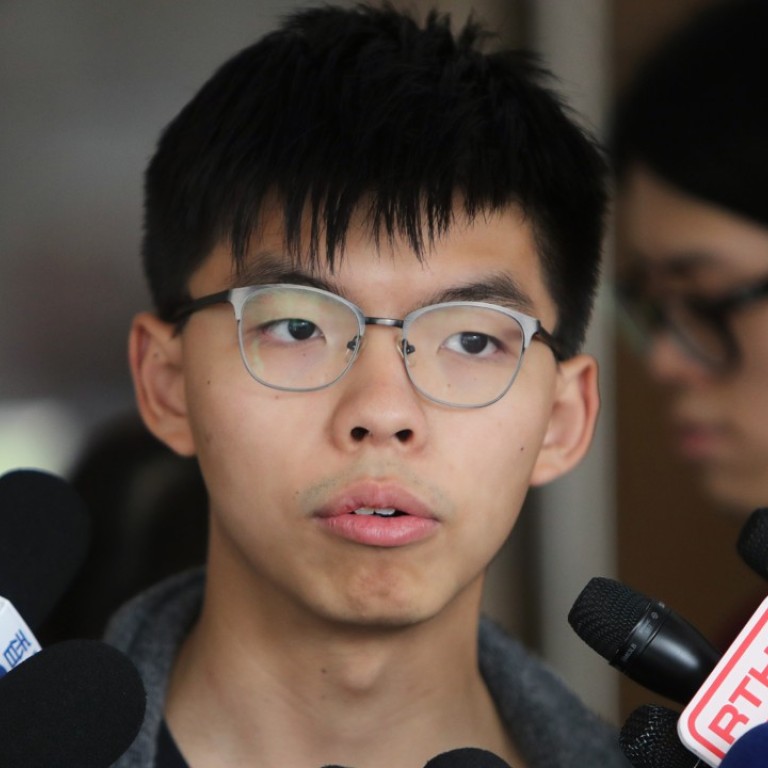
Hong Kong activist Joshua Wong calls for independent prison body after complaint dismissed
21-year-old accuses prison officials of ‘operating in black box’ after they toss out his grievance, and demands greater transparency
The 21-year-old pro-democracy activist said the Correctional Services Department’s (CSD) complaint system was “like operating in a black box”.
Were ‘political considerations’ behind rejection of Joshua Wong’s political party?
The department received more than 500 complaints from inmates from 2013 to last year, but only eight, or 1.5 per cent, were proved valid, said lawmaker and social worker Shiu Ka-chun, who accompanied Wong at a press conference.
“From my complaints, it showed that if the officers involved said it did not happen, then it did not happen and all the allegations were dismissed. That was how the complaints unit of the department worked,” he said.
Wong, along with fellow activists Nathan Law Kwun-chung and Alex Chow Yong-kang, was convicted in 2016 over his role in a 2014 protest that led to a 79-day occupation of major roads to demand greater democracy.
Wong and Law were released on bail in October pending appeal. Chow was released on bail in November.
Joshua Wong tells court police forced him into car without warning
Wong said that when he was transferred to the low-security Tung Tau Correctional Institution in Stanley on October 16, soon before his release, he took off all his clothes for a body search. Prison officers told him to squat naked while raising his head and answer questions about his political affiliation.
Wong revealed on Friday his complaint was dismissed last month by the CSD’s complaints committee.
In a letter dated June 27, a secretary of the committee told Wong his accusations were unfounded because “the officer involved denied it and [the accusation] was not supported by the relevant officers, inmates and information”.
Wong filed an appeal to the CSD’s appeal board to review the unit and the committee’s conclusions.
Shiu said that from 2013 to last year, the committee approved 543 investigation reports on inmates’ complaints. Only 1.5 per cent of those complaints were proved to be valid, while 54 per cent of the complaints were classified as “unproven”, and the probes on 15 per cent of the complaints were terminated, he said.
Wong said: “It was also very ridiculous that even as the complainant, I myself was not told ... whether my complaints [would be classified as] unproven, investigation terminated or false.”
US senator off target in backing Hong Kong protest leaders
In April, a group of pan-democrat lawmakers, including Shiu, proposed establishing an independent council to review and monitor the operation of the city’s prisons, detention and rehabilitation centres.
Wong endorsed the group’s view, saying it would ensure accountability in the department in how it manages prisons and detention facilities.
He said he would file legal documents at the Small Claims Tribunal on Monday, asking for compensation from the department for humiliating him at the Tung Tau facility.
A CSD spokeswoman said its investigation into complaints was made “in a fair, impartial and thorough manner”. If the complainant is not satisfied with the findings of the investigation, he can lodge an appeal to an independent and “impartial” appeal board, which comprises stakeholders and religious figures who are familiar with correctional operations, she added.
The spokeswoman also said body searches are a core element in prison security. This includes strip searches and requesting inmates to perform different postures such as squatting to ensure that no contraband is concealed inside their body, she said.

